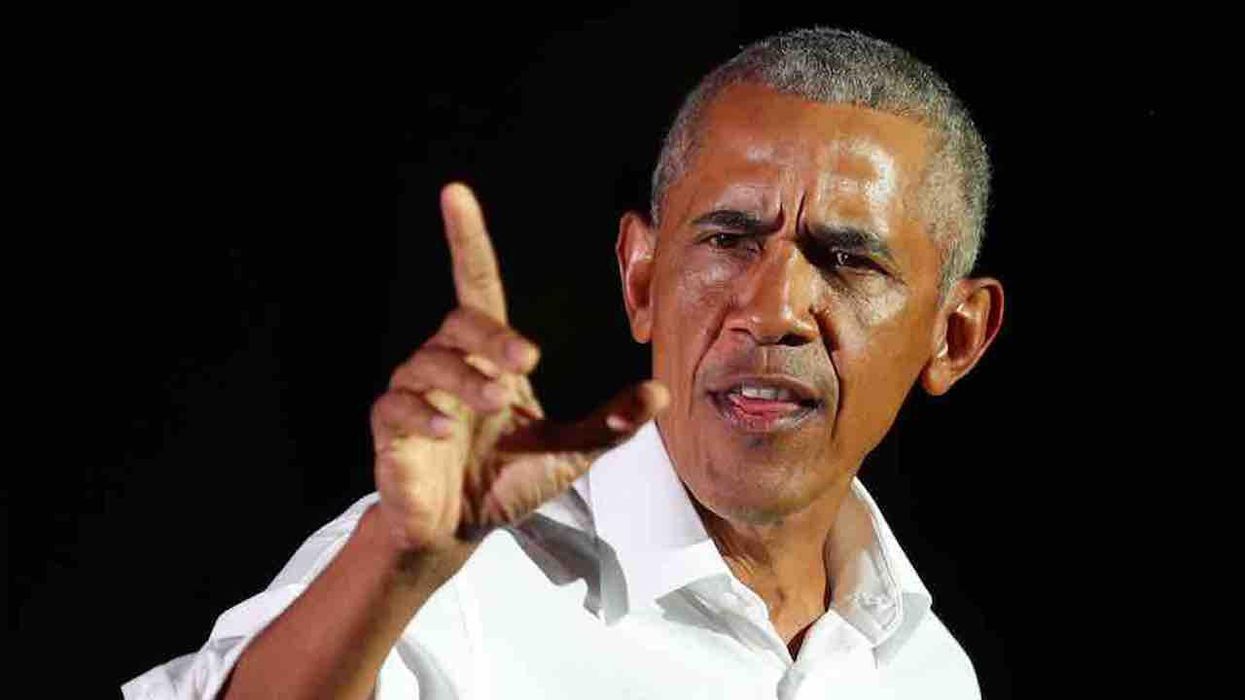
Photo by Joe Raedle/Getty Images

The former president also brought up 'talk of welfare queens and ... the undeserving' poor' and the 'backlash against affirmative action' as culprits
Former President Barack Obama called out "the politics of white resistance and resentment" as one of the reasons why he didn't push for reparations while he was in office.
During the second episode of Obama's new podcast with singer-songwriter Bruce Springsteen — "Renegades: Born in the USA" — the duo spoke about race in America.
One of the subjects was reparations, and Obama said they were justified since "the wealth of this country, the power of this country ... not exclusively, maybe not even the majority of it ... but a large portion of it, was built on the backs of slaves," the Huffington Post said.
He added that it was "perfectly understandable why working-class white folks, middle-class white folks, folks who are having trouble paying the bills or dealing with student loans ... wouldn't be thrilled with the idea of a massive program that is designed to deal with the past but isn't speaking to their future," the outlet added.
"We can't even get this country to provide decent schooling for inner-city kids," Obama also said, according to the Post. "And what I saw during my presidency was the politics of white resistance and resentment. The talk of welfare queens and the talk of the undeserving poor. And the backlash against affirmative action. All that made the prospect of actually proposing any kind of coherent, meaningful reparations program ... not only a non-starter but potentially counterproductive."
Fox News said it appears the former president has changed his position on reparations, as he opposed the idea during his 2008 presidential campaign and argued that "the best reparations we can provide are good schools in the inner city and jobs for people who are unemployed."
Reparations has appeared to flirt on the perimeter of public consciousness over the years, but now that Democratic President Joe Biden is in office, reparations seem to have been occupying a larger swath of the national conversation.
Last week during a House Judiciary Committee hearing on the subject, former NFL star Herschel Walker — now an outspoken conservative voice — argued against slavery reparations. A devout Christian, Walker said reparations are "outside the teaching of Jesus Christ."
U.S. Rep. Sheila Jackson Lee (D-Texas), who was part of the virtual committee hearing, in 2019 introduced H.R. 40 — the Commission to Study and Develop Reparations Proposals for African Americans Act — to "examine slavery and discrimination in the colonies and the United States from 1619 to present and recommend appropriate remedies."
Also last week it was revealed that Biden supports studying reparations. White House press secretary Jen Psaki said the study would be part of the Biden administration's "commitment to take comprehensive action to address the systemic racism that persists today." In February 2019, Kamala Harris said she supports slavery reparations.
But Americans overwhelmingly oppose reparations, as a Reuters/Ipsos poll last summer found that only 1 in 5 respondents agreed the U.S. government should use "taxpayer money to pay damages to descendants of enslaved people in the United States."